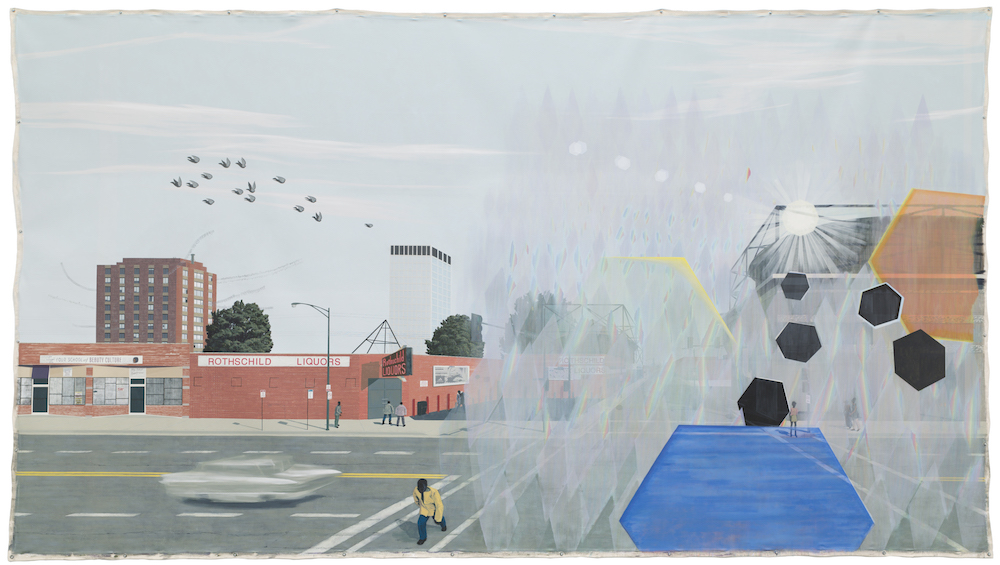We’re away until January 4, but we’re reposting some of our favorite pieces from 2020. Enjoy your holiday!

Kerry James Marshall, 7am Sunday Morning, 2003 (Courtesy Museum of Contemporary Art Chicago. Photo: Nathan Keay, © MCA Chicago)
My great aunt Cora Mae can’t hear well. She is ninety-eight years old. When the global pandemic reached Michigan, the rehabilitation center where she was staying stopped accepting visitors. There were attempts at FaceTime, but her silence made it clear that for her, we had dwindled into pixelated ghosts. She contracted COVID-19 and has been moved again and again. When my mother calls to check on her every day, she makes sure to explain to hospital staff that my great aunt is almost deaf, that they have to shout in her left ear if they want to be heard.
Cora Mae has a bawdy sense of humor. Most of the time when she speaks, it’s to crack a joke that would make most people blush. She wears leopard print and prefers for her hair to be dyed bright red. I have tried to imagine her in the hospital, attempting to make sense of the suited, masked figures gesticulating at her. She doesn’t know about the pandemic. She doesn’t know why we’ve stopped visiting. All she knows is that she has been kidnapped by what must appear to be astronauts.
from The Paris Review https://ift.tt/34HiGwF
Comments
Post a Comment